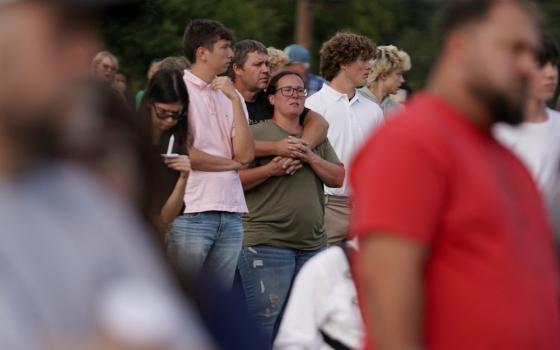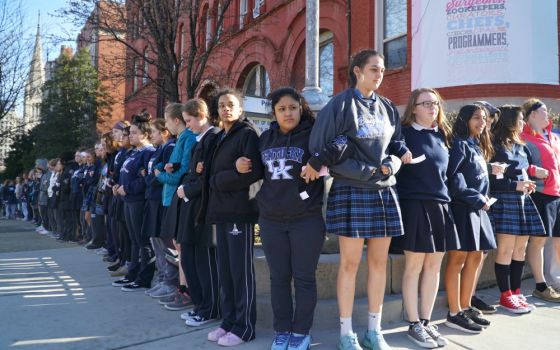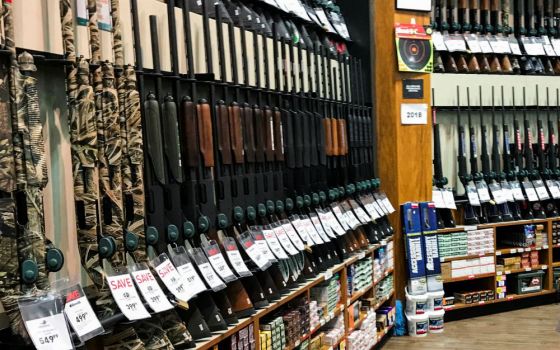Even before President Barack Obama released details of his plan to reduce gun violence, governors and state legislative leaders were taking action on their own.
New York became the first state to change its gun laws since the Dec. 14 shooting in Newtown, Conn.
Signed by Gov. Andrew Cuomo, a Democrat, on Jan. 15, the new law expands a ban on assault weapons and which weapons qualify as assault weapons. The law lowers the allowed size of gun magazines from 10 bullets to seven, according to The New York Times. It imposes stricter punishment for people who use guns in various crimes or take them onto school grounds.
The law will also work to limit the accessibility of firearms to mentally ill individuals, and it requires handgun owners to renew their licenses every five years.
The New York State Catholic Conference has not issued a statement on the new law, but according to communications director Dennis Poust, New York bishops are supportive of efforts to address gun violence in society.
Poust said the bishops support initiatives to stop violence, "not just what we've seen so tragically in Newtown and Aurora [Colo., site of a cinema shooting in July in which 12 died], but also that day-to-day gun violence that we almost can become immune to when we live in a large urban area."
In Maryland, Democratic Gov. Martin O'Malley is preparing to lay out a tough new gun control proposal, which includes measures similar to New York's. In addition to banning assault rifles and reducing the size of magazines from 20 bullets to 10, O'Malley's proposal also calls for more safety precautions at public schools and preventing mentally ill people with violent tendencies from procuring firearms.
Additionally, the legislation would require anyone purchasing a firearm -- with the exception of hunting rifles and shotguns typically used by sportsmen -- to be fingerprinted by state police before receiving a gun owner's license.
Kathy Dempsey, communications director of the Maryland Catholic Conference, said the conference has a long history of supporting measures to reduce gun violence and would likely be active on this issue in this legislative session.
"Our bishops actually have testified, along with conference staff, many times in the past for legislation aimed at curtailing all the needless and heartbreaking violence that is caused by the abuse of firearms," she said.
She added the conference was looking for a balanced approach to violence reduction that would look at gun control and "ways to help those in need of mental health assistance. ... I believe the governor's package is addressing both issues."
Other states are more like Oregon. Democratic Gov. John Kitzhaber, in interviews in early January on the eve of the opening of the legislative session, said he wouldn't lead the charge on tougher gun control laws, but he would support such proposals from the legislature. A bill to ban high-capacity ammunition magazines has been introduced in the State Senate.
The Oregon Catholic Conference has not issued a statement on gun control issues yet, according to communications director Bud Bunce. He said he expects the Oregon legislature take up other issues before it addresses gun control.
Meanwhile, state representatives in Wyoming, Texas and Missouri have introduced bills that would prohibit the enforcement of any federal laws restricting the ownership or manufacturing of any firearm, firearm accessory or ammunition.
[Eloísa Pérez-Lozano is an NCR Bertelsen intern. Her email address is eloisapl@ncronline.org.]
Other stories in this series:
Obama proposals on gun control align with religious leaders' pleas, by Jerry Filteau
Researching gun epidemic is first step to solving it, an NCR Editorial
Boston researcher: Public health strategies could help reduce gun violence, by Claire Schaeffer-Duffy




